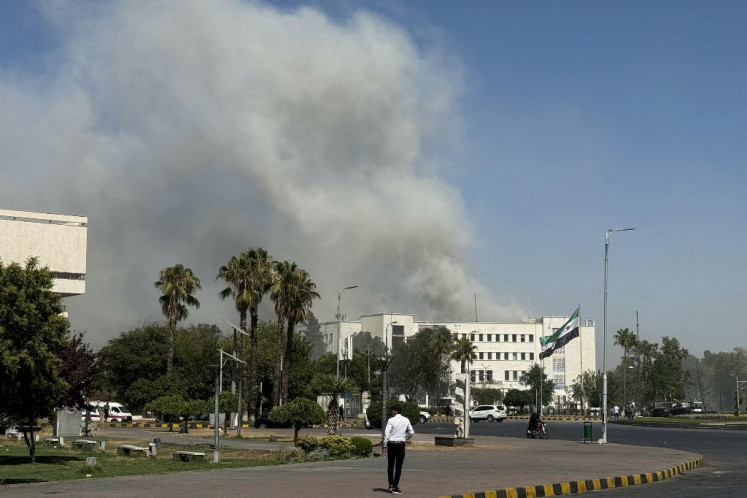Popular Reads
Top Results
Can't find what you're looking for?
View all search resultsPopular Reads
Top Results
Can't find what you're looking for?
View all search resultsGovt issues rules to boost bonded zone exports
The government has issued new regulations to boost production in bonded zones to encourage exports to counter a possible economic slowdown
Change text size
Gift Premium Articles
to Anyone
T
he government has issued new regulations to boost production in bonded zones to encourage exports to counter a possible economic slowdown.
The regulations are Finance Ministerial regulations No. 143/2011 on bonded warehouses, which requires producers to export 75 percent of their output, up from 50 percent, and No. 147/2011 on bonded zones, which removes import duties on capital goods, raw materials and intermediary goods produced in the zones.
The Trade Ministry’s foreign trade chief Deddy Saleh said on Tuesday in Jakarta that bonded zones promoted efficient production and increased the competitiveness of local products overseas by providing incentives, such as the removal of duties levied on capital goods, intermediary goods and raw materials.
The regulations would encourage producers to export their products instead of selling them at home.
“That’s why businesses should make the best use of the facilities to produce goods for export and not for domestic sales,” Deddy told reporters at a press conference on monthly trade performance.
Indonesian Employers Association (Apindo) chairman Sofjan Wanandi said the regulation on bonded zones supported local businesses, but questioned restricting goods produced in bonded zones from entering the domestic market.
Sofjan said it would be difficult for producers to shift goods from the domestic to the export market amid the current economic downturn.
“It is better for the government to postpone implementation of the regulation until the economic situation improves,” he said.
Sofjan recommended that the government allow the domestic sale of goods from bonded zones to counter cheap imports, principally those from China, which have been exempted from import duties under free trade agreements.
“The government can still receive income from a tax on the products manufactured there and sold in the local market,” he said.
However, Indonesian Textile Association (API) chairman Ade Sudrajat disagreed, saying that export restrictions would create competition and benefit producers inside and outside bonded zone.
“The 25 percent cap on local marker access for goods made in bonded zones will make the local market more conducive by countering unfair competition between producers inside and outside bonded zones who do not have similar special facilities and thus have higher production costs,” he said, referring to import duties and value-added taxes.
Ade said that ideally 90 percent of the output from bonded zones output would be exported, with the remainder earmarked for the local market.
Removing import duties on materials supporting production in bonded zones would also be in line with increasing competitiveness, he said.










